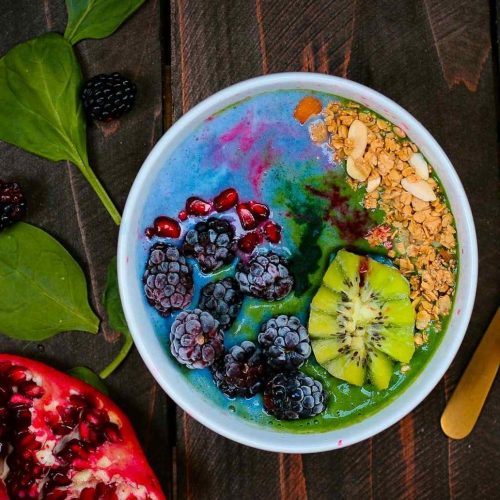Veganism: Environmentalist Revolution or Pointless Fad?
With many companies now exploiting the vegan trend, is veganism always the most environmentally friendly and sustainable option? More importantly, are people adopting a vegan lifestyle because of the health, environmental and ethical reasons or are they simply following the movement currently promoted by the media?
To receive the Luxiders newsletter, sign up here.
There is no hiding from the fact that veganism is on the rise. Although the term “veganism” came about in 1944 when the Vegan Society was founded, the number of vegans, vegan restaurants, vegan food products, vegan beauty products, vegan clothing brands and even vegan holiday resorts has grown particularly in the last 5 years and seems only to be increasing. Veganism is defined as the practise of abstai- ning from animal products, a practise which actually traces back over 2000 years to ancient Indian and Eastern Mediterranean societies. For many people, veganism also encompasses environmentalist principles. However, with many companies now exploiting the vegan trend, is veganism always the most environmentally friendly and sustainable option? More importantly, are people adopting a vegan lifestyle because of the health, environmental and ethical reasons or are they simply following the movement currently promoted by the media?
Without a doubt, the vegan lifestyle has become one of the trendiest. In America the number of vegans increased by 600% between 2014 and 2017, and in the UK 1 in 3 people have reduced their meat consumption. The beautifully curated Instagram feeds of vegan celebrities and social media influencers convince us that this is the secret to health and wealth. Whilst many vegan influencers and companies are passiona- te about promoting the ethical grounds and environmental and health benefits of veganism, there are cases of veganism being exploited for other reasons including gaining publicity and financial profit. Many big companies such as McDonalds and Ben & Jerrys and large supermarket chains including Lidl and Aldi now offer vegan ranges. While the increase in vegan choices may seem like a step forward for veganism, some of the vegan products available today can be more harmful for the environment and our health than certain animal products, which many people would argue is detrimental to the purpose of going vegan.


The reasons for choosing a vegan lifestyle comprise a range of health, environmental and ethical factors. Vegan diets are associated with lower blood pressure and cholesterol and reduced risk of heart disease, type 2 diabetes and cancer. Eating a range of plant-based foods has countless health benefits and enables us to obtain a variety of beneficial nutrients. On the other hand, there is evidence to suggest that animal products can be harmful to our health and contribute to the incidence of disease. The only essential nutrient that cannot be obtained from plant-based foods is vitamin B12, and therefore it is important that individuals who eat a primarily plant-based diet supplement appropriately. Deficiency symptoms may not appear immediately but can include weakness, tiredness, heart palpitations and light headedness. Vitamin B12 is produced by microorganisms found in the soil and in the digestive system of herbivorous animals, but sterile and intensive modern farming methods mean that our soil no longer contains vitamin B12 and factory farmed animals often require vitamin B12 supplements. Reliable sources of B12 include fortified foods such as plant-based milks, yoghurts and yeast products as well as dietary supplements.
Not only is a vegan diet claimed to be better for our health, there is strong evidence supporting the idea that adopting a vegan lifestyle is the most significant way in which an individual can have a positive impact on the environment. If the global population adopted a vegan diet, 8 million human lives could be saved, and greenhouse gas emissions could be reduced by 2/3 by 2050. It takes vastly greater amounts of water and crops to produce animal products for consumption than to grow plants for a vegan diet. By reducing our intake of animal products, we can reduce our strain on food and resources and support populations that currently live in deprivation. In addition to improving the wellbeing of the global population, veganism supports the wellbeing of animals. Many vegans hold the ethical viewpoint that all sentient organisms should have a right to life and freedom.

As a result of the variable reasoning for adopting a vegan diet or deve- loping a vegan product, the term “vegan” does not automatically equate to ethically sourced, sustainable or healthy. Consumers now face the challenge of identifying whether a vegan product is also nutritious, environmentally friendly and priced fairly. In line with this, transparency about the origin and development of a product has become of huge importance. Environmentalists look beyond the “vegan” and “organic” labels to assess the environmental footprint of their purchases. Likewise, health-conscious individuals look beyond these labels to determine the nutritional value of their food. Examples of veganism conflicting with health, environmental and ethical advantages include the production of overpriced, processed vegan food products with little nutritional value, unsustainable ingredients and disposable packaging; vegan shoes and clothing made of synthetic and unsustainable materials that are damaging to the environment; and vegan beauty products that contain synthetic ingredients and plastic packaging, both of which contribute towards waste and pollution.


So, is veganism just another fad or are individuals becoming more environmentally conscious? Whatever the reasons may be, consumers are becoming increasingly mindful of their diet and lifestyle choices which suggests that at the very least, the principles of veganism are here to stay. It is unlikely that the number of vegans will increase consistently, however the concept of a healthy and sustainable diet and lifestyle appears to be of growing interest. Documentaries such as “Cowspiracy”, “What the Health” and “Forks over Knives” have been hugely successful in educating a broad audience about veganism while cookbooks by the likes of Deliciously Ella, The Bosh Brothers and The Happy Pear make the transition to a vegan diet easier. Experiencing veganism in one way or another, whether adopting the lifestyle fully, eating more plant-based or simply gaining an understanding of the key principles has taught consumers to question what they are purchasing and whether it is good for them and the environment, and the progression of this mindset will support the sustainability of our planet.
Words: Yasmin Razzaque




